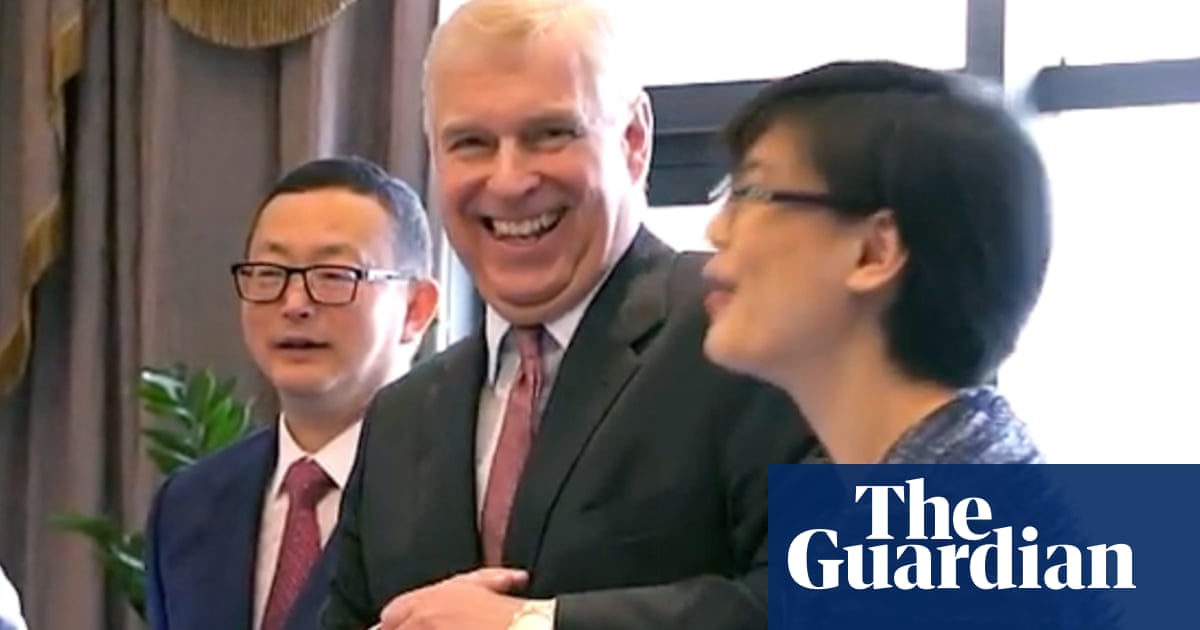Once upon a time, the world stopped to watch when the heavyweight championship was at stake. Oleksandr Usyk’s unanimous-decision triumph over Tyson Fury in Riyadh on Saturday was barely noticed. There were pockets of interest in the fighters’ Ukrainian and English homelands. But beyond that, the response was muted. Indeed, the promotion all but wrote off the United States market by scheduling the fight opposite the first round of the College Football Playoff tournament. That meant there was even less media attention for Usyk-Fury II in America than would otherwise have been the case and fewer fans buying the pay-per-view.
That’s a shame because it was an important fight and a good one.
It’s hard to say that Fury has a “larger than life personality” because, at 6ft 9in tall and weighing 280lb, Tyson is extremely large. But his personality is equal to his size. He’s loud. He’s profane. He’s mercurial. And he can fight.
Unlike Fury, Usyk doesn’t stir passions. Outside of Ukraine, he could walk unnoticed down almost any street in the world. He has thrived and surprised in the heavyweight ranks by beating larger, harder-punching men like Fury (twice), Anthony Joshua (twice) and Daniel Dubois. He is an exemplary sportsman.
Oleksandr doesn’t trash talk - “I’m just going to fight in the ring and that’s all. How is trash talk going to help me? That’s not how a man behaves.”
He has consistently turned the other cheek to Fury’s insults - “I have much respect for Tyson Fury. He’s big with good skills. Tyson is my greedy belly friend. He is like my brother.”
And at times he sounds like a poet - “Love is the strongest motivator. And if that doesn’t help, you need more love.”
Fury and Usyk first met in the ring on 18 May of this year. Tyson was expected to grab and maul and push and shove and rough Oleksandr up on the inside. But he was never able to impose his size and strength on his smaller foe.
The turning point came with 30 seconds left in round nine when Usyk rocked Fury with a hard straight left hand and battered him around the ring, landing 14 unanswered blows. Tyson was out on his feet and fell into the ropes multiple times, avoiding disaster when referee Mark Nelson appropriately called a knockdown. Seconds later the bell rang, saving Fury from further punishment.
“I got caught,” Tyson said afterward. “People get caught all the time, don’t they. What went wrong? Well, I got punched in the fuckin’ face. Hard. That’s what went wrong. It wasn’t so much what he did right. It was me more fatigued than anything else, getting lackadaisical, throwing punches while I wasn’t thinking about what I was doing.”
The judges favored Usyk by a 115-112, 114-113, 113-114 margin. If one judge had scored one round differently, Fury - not Usyk - would have become the undisputed heavyweight champion of the world.
“I thought I won the fight,” Tyson said afterward. “It was a split decision. It was close but I thought I did enough to win it. I said it then and I’ve watched it about a hundred times since. But guess what? That’s just someone’s opinion. Just like a judge or just like you.”
There was a rematch clause that Fury invoked. “For a hell of a lot of money,” he noted. “I’d have to have no legs, no arms, and half my head chopped off to not take the rematch. How’s that? No eyeballs. Actually, I’d do it if I was blind.”
Like their first encounter, Usyk-Fury II was contested at the Kingdom Arena in Riyadh.
When Eddie Hearn brought the rematch between Anthony Joshua and Andy Ruiz to Saudi Arabia five years ago, there was a wave of criticism and commentary about the site. Now “sportswashing” is seldom mentioned and soccer’s World Cup is slated to be contested in the Kingdom in 2034.
Usyk-Fury II didn’t have the buzz of its predecessor. One reason for that was the ludicrous decision by the IBF to force Usyk to relinquish his belt because he wouldn’t fight a “mandatory” defense against Dubois (whom Oleksandr had knocked out previously and who had been in the mandatory slot for only a few weeks). As a consequence of that decision, the heavyweight title has now been fragmented.
Meanwhile, Usyk had a lot more than a boxing match on his mind. Ukraine’s existence is threatened by the ongoing Russian invasion that began in February 2022 and shows no sign of abating.
Rather than allow his country’s perilous military situation to distract him from performing at his best in recent fights, Usyk has used the conflict for motivation. Speaking about what it has taught him, he declared, “The war has shown who is who. Who is lying, who is telling the truth. Who is a good person, who is not. The war showed everyone’s cards. Some who previously seemed weak turned out to be incredibly strong.”
And on a personal note, Oleksandr added, “The war has changed me inside completely as a man. I became stronger. I started to love people even more. I was never afraid of death. But now I am not afraid of death at all because it is going to come when it needs to come.”
As Usyk-Fury II neared, Usyk was a slight betting favorite.
“I haven’t changed anything and I won’t change anything,” Fury said of his fight plan for the upcoming encounter. “Why would I change something when I had control of the [first] fight for maybe 80% of it? I don’t feel like I need to change anything. I don’t think he can change much either because his key to victory has to be coming forward like that. He ain’t going to outbox me on the back foot. I’m going to knock him out. I’m going to walk him down. I’m going to beat the fuck out of him. I’m going to punch his head in, all-out attack.”
Of course, Fury had said similar things prior to Fury-Usyk I when he proclaimed, “I’ll put my fists right through him … I’ll butcher him … He’ll be running away like a little bitch all night … I will hunt him down and, when I get hold of him, he’ll be crushed.”

On a less hyperbolic note, 10 days before the rematch, Fury acknowledged, “I’m not the same guy I was at 21 or 22, but who is at that age? No one is. Muhammad Ali wasn’t. Mike Tyson definitely wasn’t. Nobody is. Who is the same man they are at 36 as they were at 26? Nobody, really. I remember when I was a young guy in my 20s and I said to Wladimir Klitschko, ‘Look at you. You’re an old man.’ He was 37. I said, ‘You’re old. You’ve got gray hairs in your beard. It’s a young man’s game.’ Now I’m in that position.”
Usyk, of course, is 17 months older than the 36-year-old Fury and has the wear and tear of more than 300 amateur bouts on his body in addition to his fights as a pro. But the undisciplined lifestyle that Tyson has lived over the years (obesity combined with excessive recreational drug use) negated that age differential.
When asked about Fury’s prediction of a crushing knockout, Oleksandr said simply, “Is only talk.”
There was a silly 10-minute staredown between the fighters following the final pre-fight press conference. Then Team Usyk objected to Fury’s “mountain-man beard” which they said would cushion blows and might cause abrasions if Tyson rubbed it against Oleksandr’s face in clinches. But the beard was allowed by the Middle East Professional Boxing Commission (which had jurisdiction over the bout).
More significantly, Fury weighed in at 281lb – his heaviest weight ever for a fight and 19lb more than he’d weighed for Fury-Usyk I. That was 55lb more than Usyk, who tipped the scales at 226 (up three pounds from their earlier encounter).
Once all the glitzy pre-fight activities were over, there was a fight to be fought. Prior to Fury-Usyk I, everyone knew that Fury could hurt Usyk but the converse was less certain. “Now,” Lennox Lewis observed, “Usyk knows he can hurt Fury.” And everyone else knew it too.
When fight night arrived, nine of the fighters on the 21 December card were from the United Kingdom and four from Ukraine. The others came from Saudi Arabia, Australia, France, Colombia and Mexico. The A-side fighters won seven of eight undercard bouts, although it took questionable scoring from two judges to save Johnny Fisher’s undefeated record against David Allen.
Then it was time for the main event. Fury came out more aggressively this time than he had in Fury-Usyk I. And unlike his performance in their previous encounter, there was no clowning on his part. Tyson used his reach effectively and controlled the early going with his jab. But he didn’t use his bulk to wear Oleksandr down on the inside as effectively as he might have.
The pace picked up in round four. By round six (as in their first fight) it appeared as though Usyk was tiring. Then Oleksandr found a new gear. And Tyson, feeling the pace, stopped moving forward as aggressively as he had before. Each time Fury tried to assert himself, Usyk countered. And when Tyson took a breather, Oleksandr filled the void with punches.
The fight was less dramatic than their first battle. The swings in momentum were less pronounced, and there were no “he’s hurt!” moments. Once again, Usyk got everything possible out of himself. No one can question the resolve that he has shown time and time again. Oleksandr goes to a place in the ring where he gives everything he has and then seems to give more.
All three judges scored the bout 116-112 for Usyk. That was charitable to Oleksandr.
“I’ll believe until the day I die that I won that fight,” Fury said at the post-fight press conference. “But it is what it is. I’m not gonna cry over spilt milk. It’s happened now. You can’t change decisions. It’s not Oleksandr’s fault. I’m gonna go home now and have a good Christmas.”
Told that Dazn (which streamed the fight worldwide) had employed the services of an “AI judge” to score the bout and that the artificial intelligence judge had favored Usyk by a 118-110 margin, Tyson said simply, “Fuck all the computers.”
Or phrased differently, the computer needs new software.
As for what comes next; Usyk is likely to fight a rematch against Daniel Dubois, assuming that Dubois prevails in a scheduled 22 February outing against Joseph Parker.
Meanwhile, Fury seems destined to do battle next year against Anthony Joshua. Fury and Joshua have both been beaten twice by Usyk. And AJ was knocked out in September by Dubois. But Fury-Joshua would resonate with the British public. And as Tyson said recently, “Money talks all languages, doesn’t it?”
Fury, of course, has accumulated generational wealth from boxing. Neither he nor Joshua is in need of money. How much longer will Tyson keep fighting?
“I’ve tried to walk away many times and been unsuccessful,” Fury has said. “I meant it when I retired after Dillian Whyte back in 2022. I really meant that wholeheartedly. I could have put my hand on the Bible and meant it, but it was difficult to let it go. I’ve been in love with boxing from being a little boy. It’s been a love-hate relationship. When it’s good, it’s very good. And when it’s bad, it’s very toxic. Now I am a fully grown adult with a family of my own. It’s like, ‘Do I abandon it or do I not?’ I wanted to walk away a lot of times but it always drags me back. Boxing is an addiction. It abuses my body, my mind, my soul. But I feel like it takes me to ecstasy. The rush is unbelievable. It gives me the biggest highs ever, but it also gives me the lowest lows. Boxing is more addictive than any drug ever. Ever. You can’t let it go.”
-
Thomas Hauser’s email address is [email protected]. His most recent book – a memoir titled My Mother and Me – is now available in stores. In 2019, he was selected for boxing’s highest honor – induction into the International Boxing Hall of Fame.

.png) 3 months ago
28
3 months ago
28













































